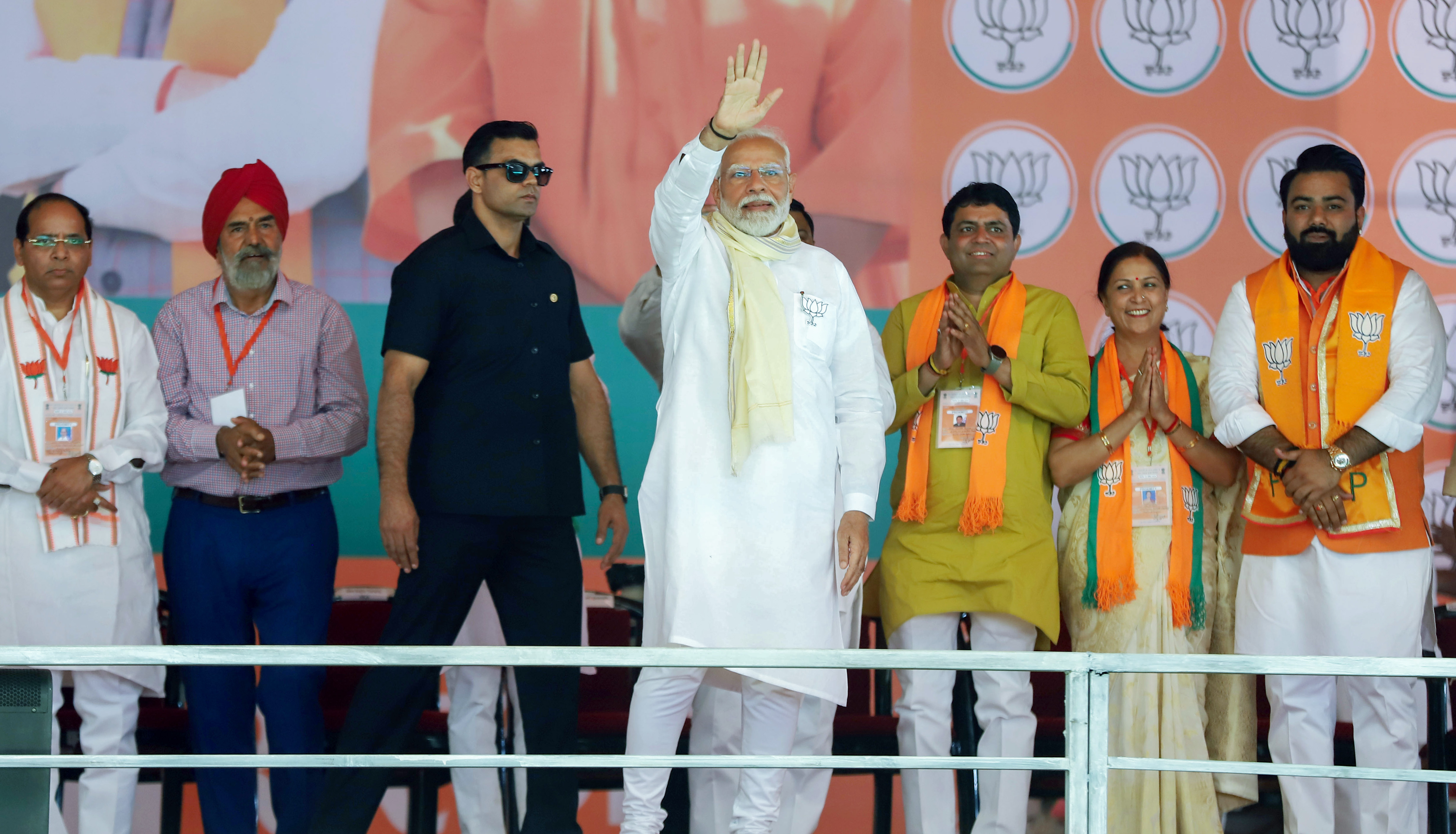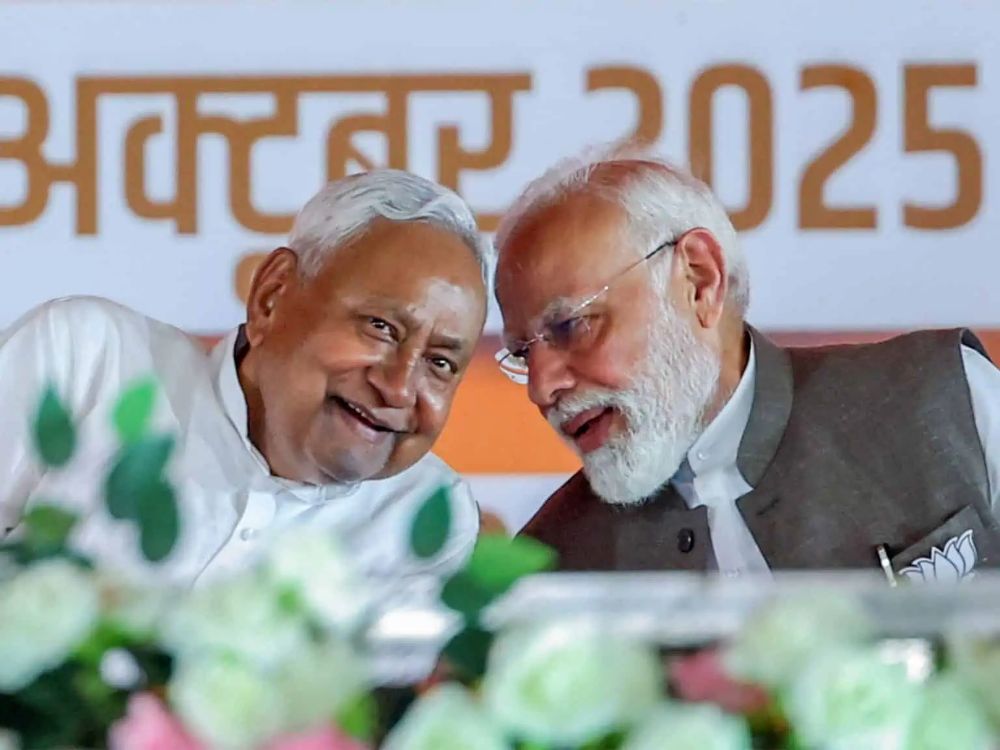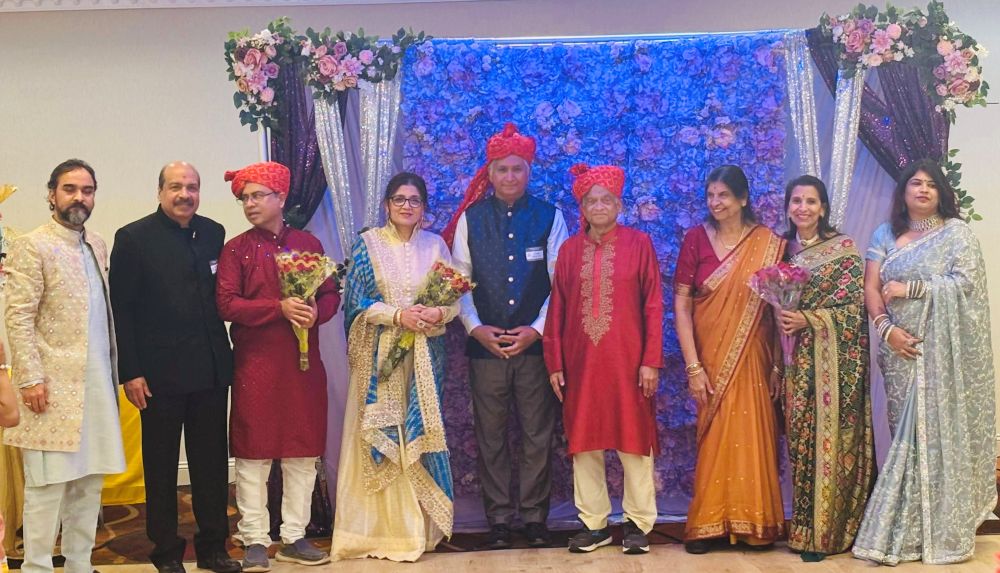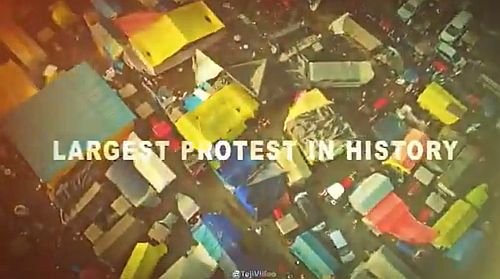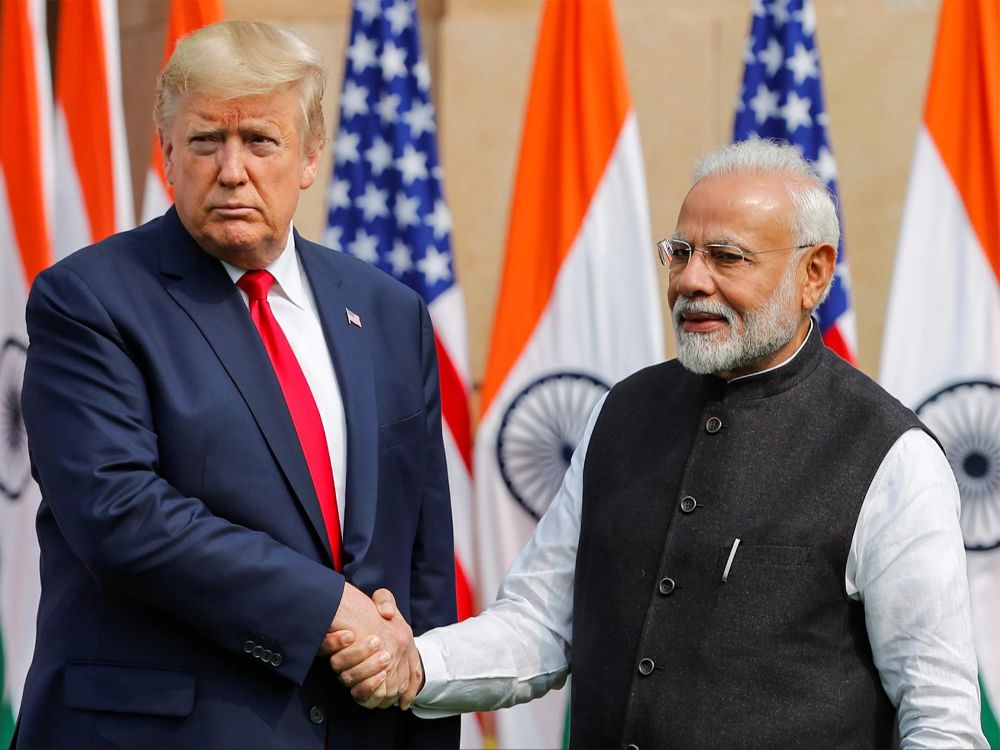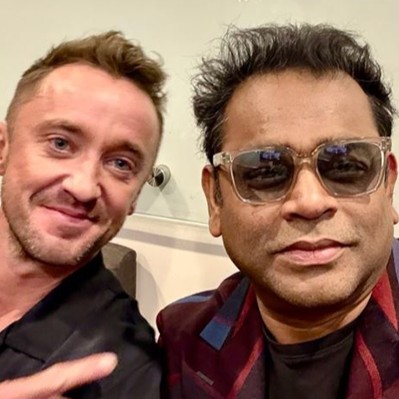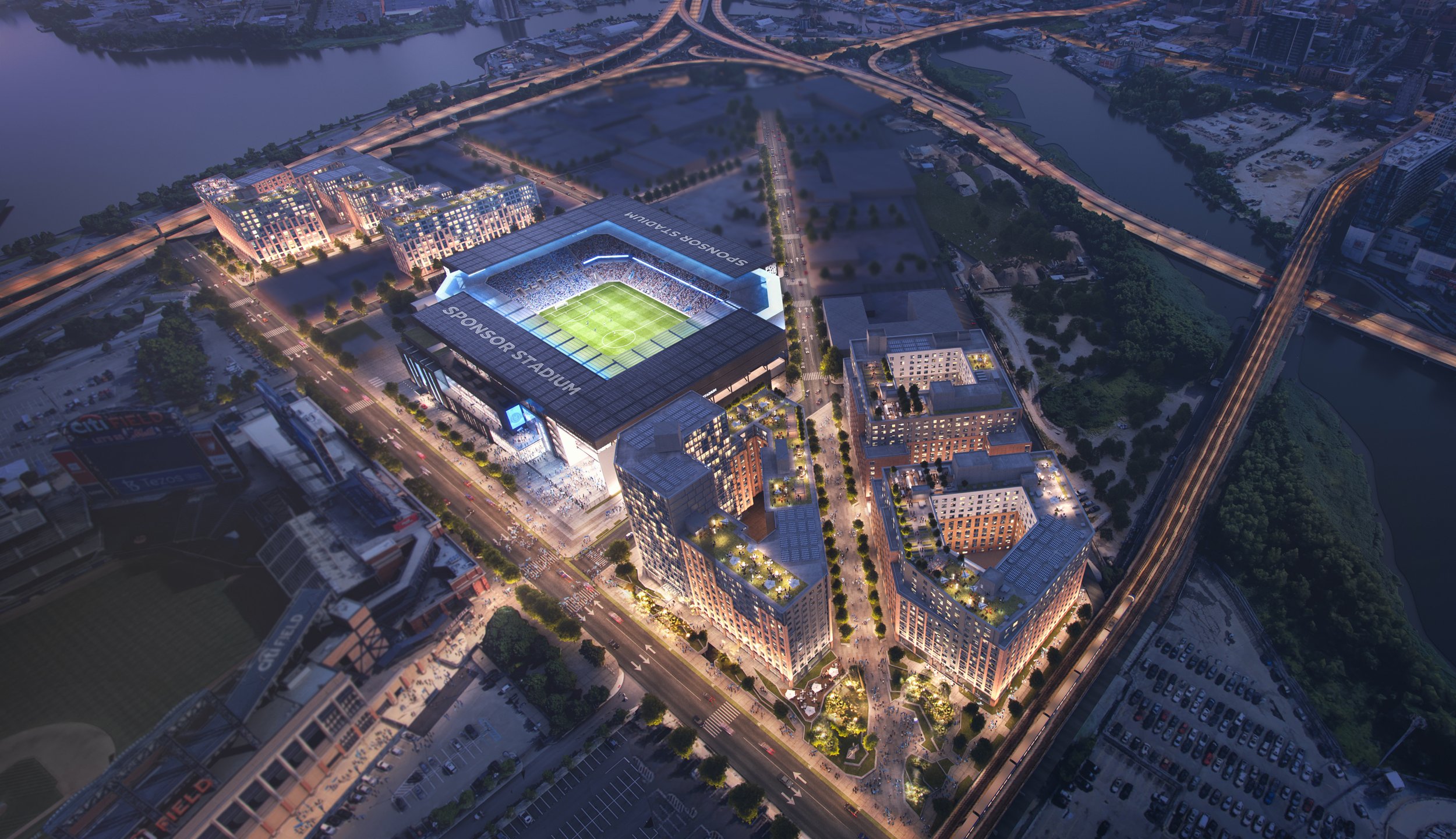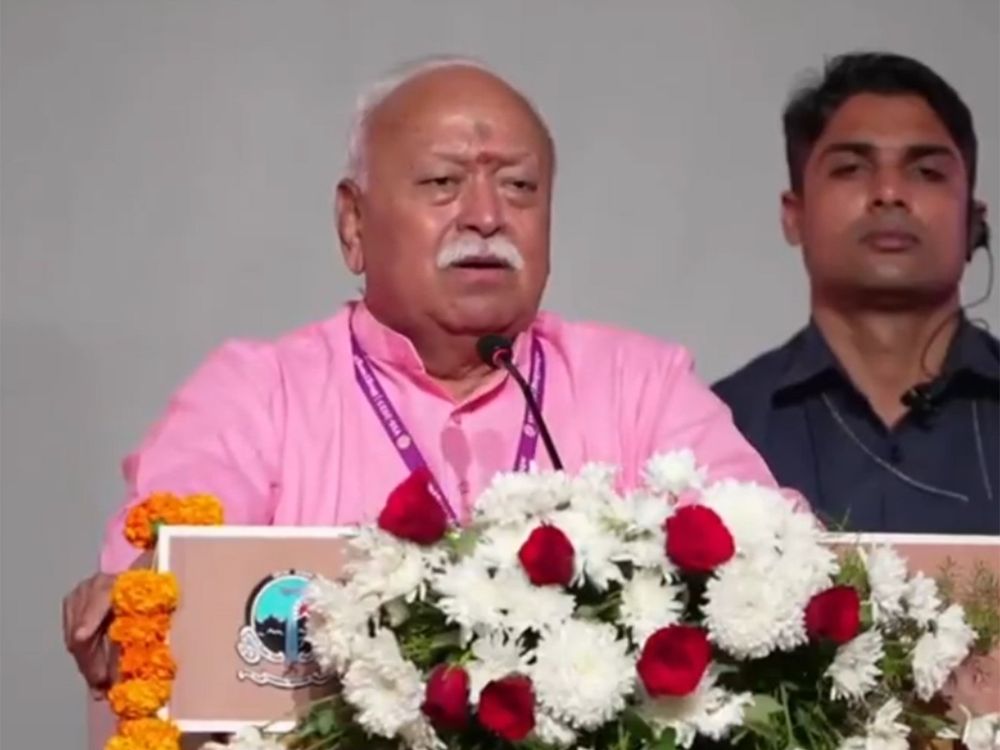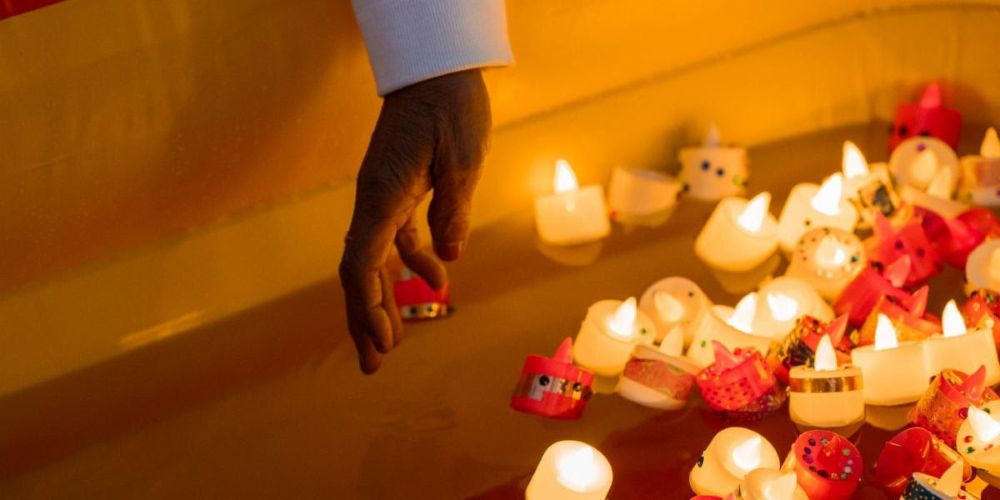In its election manifesto, BJP emphasizes on the need to have a strong government that makes the country prosperous. Even independent observers question the populist tone in Congress party’s manifesto. Which manifesto has more appeal?
Our Bureau
New Delhi
It was as late as it could be. With barely five days left for the first phase of the Lok Sabha elections to get underway, the Bharatiya Janata Party released its poll manifesto last Sunday with the tagline “Modi ki Guarantee,” with a focus on more development, women’s welfare and a roadmap for “Viksit Bharat” (developed India).
The BJP election manifesto promised ‘One Nation One Election’ and “single electoral roll”. The manifesto released by the BJP also focuses on bringing forward more Lakhpati Didis. It promises to make electricity bills zero with the PM Surya Ghar Yojana.
Also, the manifesto of BJP features India’s Olympics bid in 2036, the implementation of the National Education Policy, and a law against paper leaks, among other promises.
In its election promise, the party also aims to make the nation the third largest economy in the world. The manifesto set the goal of making India a “global manufacturing hub.”
The manifesto was unveiled in the presence of Prime Minister Narendra Modi, Home Minister Amit Shah, Defense Minister Rajnath Singh, Union Finance Minister Nirmala Sitharaman and party President JP Nadda.
JP Nadda, while addressing the event, said that the government’s achievements over the last 10 years, such as the abrogation of Article 370 of the Constitution and the women’s reservation law, were made possible due to the clear mandate given to the party by people.
“The achievements of the last 10 years are a result of a clear mandate,” Nadda said at a function to release the Bharatiya Janata Party’s (BJP) manifesto for the upcoming Lok Sabha polls.
The BJP had appointed a manifesto committee headed by Defense Minister Rajnath Singh that met twice to deliberate on its contents after the party had launched multiple exercises, including massive campaigns across the country to seek people’s suggestions before the release of the ‘Sankalp Patra’.
The BJP received over 1.5 million suggestions for its manifesto, including more than 400,000 through the NaMo app and over 1.1 million through videos.
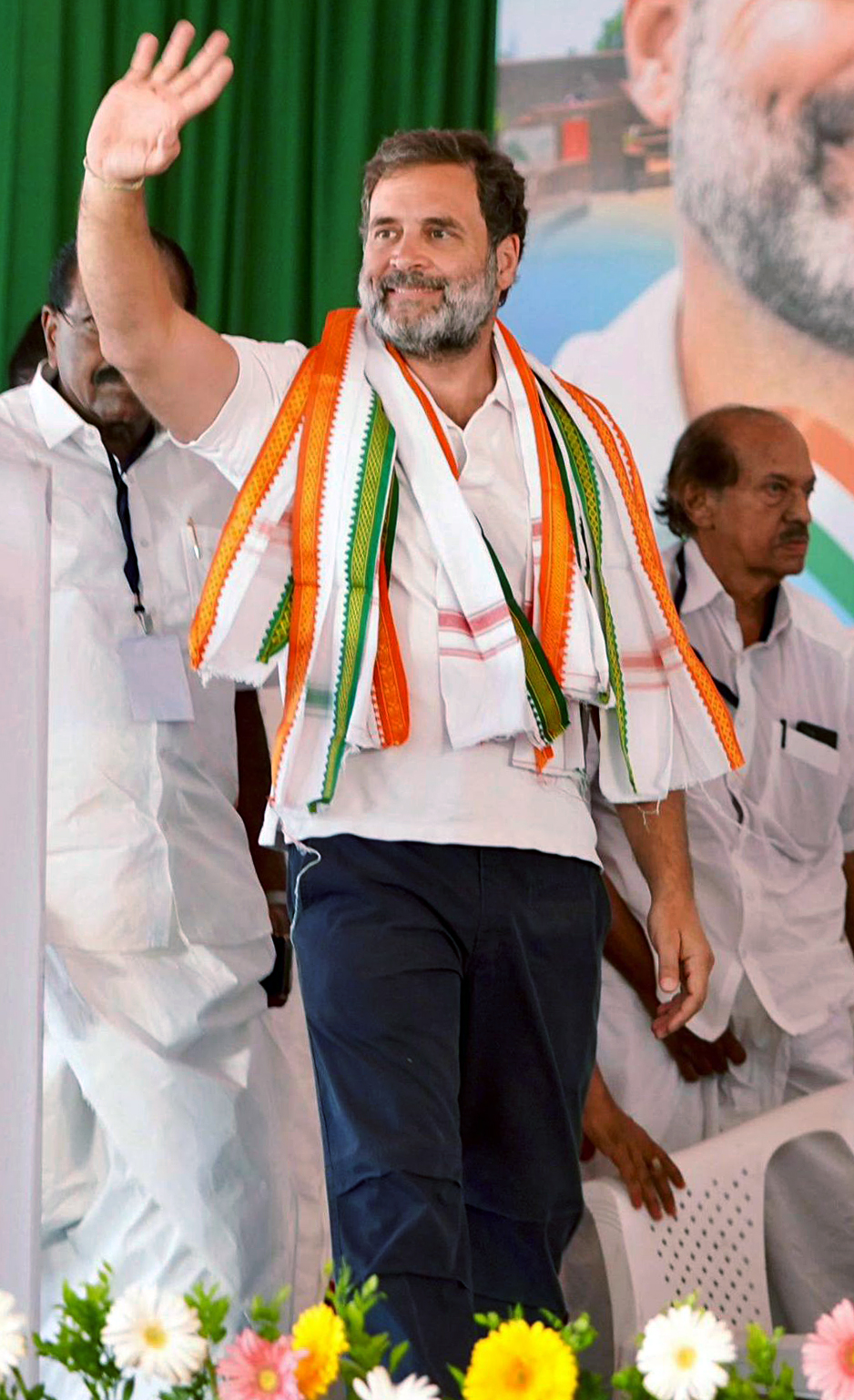
Emphasizing the rising tensions across the world, Prime Minister Narendra Modi said that during such tensions, it becomes even more necessary to have a strong and stable government with a full majority that can take the country towards ‘Viksit Bharat’ swiftly,’ after unveiling the BJP’s manifesto.
Addressing the gathering of leaders at party headquarters in the national capital after the unveiling of the BJP’s manifesto, ‘Sankalp Patra’, PM Modi noted that there is a situation of war going on across the world. He further stressed that the security of Indians living in these regions is India’s priority. This comes amid the tensions between Israel and the Hamas terror group, Israel and Iran, and the Russia-Ukraine conflict.
Moreover, PM Modi further said, “Cloud of uncertainty is hovering over the world today. There is a situation of war. The world is tense. In such times of crisis, the security of Indians living in these regions is our priority.”
PM Modi emphasized that with tensions across the world, it is necessary to have a strong government that makes the country economically prosperous, adding that the BJP is determined for this.
“When such tensions prevail across the world, it becomes all the more necessary to have a strong and stable government with a full majority – such a government that makes the country economically prosperous, that takes the country towards ‘Viksit Bharat’ swiftly and the BJP is determined for this. The BJP’s manifesto gives a guarantee for one such government,” he said.
“India, being a friendly nation, will keep on making efforts for the betterment of humanity,” PM Modi added.
After the launching of his party’s manifesto, Narendra Modi has hit out at the Congress party, saying that it fails the aspirations of the young voters of the country.
Speaking in an interview, the Prime Minister said that his vision for a developed India in 2047 aligned with the first-time voter of today who would be the biggest gainer from such a scale of development. “The developed India that I am talking about, who has a simultaneous future with it? Those who are 20 years old today. This is the time frame of his entire life, in a way. He will be 40, 45 years old in 2047. This means that the process of India’s development and the process of his life are both the same. There is a golden opportunity for him. He is going to be the biggest beneficiary of 2047. This is what I am explaining to him that I am making your future. You join with me. And I believe that they will join,” PM Modi said.
PM Modi criticized the Congress manifesto stating that it had failed the economy completely. “This manifesto completely fails the economy. In a way, the manifesto of opposition, destroys the aspiration of the first-time voter of the country. If you do the complete analysis, then the biggest loss is for the people who are less than 25 years old. This manifesto will destroy their future. I want to make their lives better. I want to give strength to innovation in the country,” PM Modi said.
“The young generation thinks that our lives are getting better. Today, the data of my country is so cheap. The result of cheap data is that I have given strength to my youth to usher a digital revolution in the country. Today, I just met the gamers. They say, sir, we go to play in the country of the world. Data is so expensive there. We have so many opportunities for us in India” the PM added.
Meanwhile, as India begins to vote for a new government at the Centre, with the first of the seven phases of the election held on Friday, the Development Bank of Singapore (DBS) has come out with a report analyzing the poll promises made by the incumbent BJP-led government and the principal opposition party Congress.
According to the manifesto, the ruling party emphasized continuity in schemes and policy rather than fresh big-bang changes while the main opposition goes with populist hues. So, in brief, the main differences in the promise documents of the two parties are continuity and populism.
Most importantly, the report by DBS noted that elements of structural reforms were largely absent in their manifestos. For BJP, maintaining continuity in schemes will have minimum financial implications because most spendings are budgeted in the Interim Budget. In the case of Congress, implementing the promises they made will entail significant fiscal costs, necessitating subsequent revenue-enhancing measures, DBS senior economist Radhika Rao argued.
“We foresee limited fiscal implications from these (BJP) announcements as part of these were included in the interim budget and the manifesto did not outline any new big-bang reforms or fresh social welfare spending programs,” said the report.
Going by the Congress manifesto, DBS noted that the fiscal deficit target of 5.1 per cent of GDP might be missed by a sharp margin.
“There is a lack of clarity as to what extent these measures will be implemented,” DBS said about Congress promises.
Coming to the manifesto, the BJP highlighted the work done by its government in the past decade of being in power and remained focused on continuing existing social welfare programs, but with a better outreach
BJP also signaled a continuation of the infrastructure push, policies to expand the manufacturing sector, and establishment the country’s position as a voice of the Global South. Some other big promises by the BJP are to introduce ‘One nation, One Election’ by 2029, besides pursuing the Uniform Civil Code.
“Similar to the pre-poll interim Budget, where the ruling central government prioritized prudence over populism (Budget), the manifesto signaled a continuation of existing reforms and social welfare schemes rather than lean towards new big-bang promises, which could carry significant fiscal costs,” DBS said.
On the other hand, Congress made a slew of promises to various sections of society in its manifesto including a legal guarantee for MSP, raising the minimum daily wage under MGNREGA to Rs 400, a confirmed first job and an annual stipend of Rs 1 lakh to educated youth, an assistance worth Rs 1 lakh annually to a woman from poor families, farm loan waiver among others.
As India goes to polls, which will last till June 1, it is going to be a clash of two different narratives – based on their manifestoes.
















